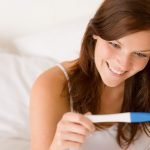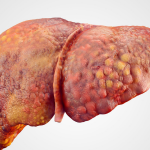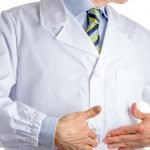Chronic Prostatitis, Interstitial Cystitis, and Leaky Urothelial Syndrome
Eric Yarnell, ND, RH(AHG)
Chronic prostatitis remains one of the most ignored, common conditions in all of medicine. Though up to 15% of all men globally experience symptoms of chronic prostatitis at some point in their lives, little money or attention has been directed toward their plight (Krieger, et al. 2003). More men now are refusing to suffer in silence any longer, and more attention is focusing on this condition. And, it turns out, they may have an important ally in figuring out this condition—women.
Mainstream medicine has long maintained that interstitial cystitis (IC) is a disease of women and chronic abacterial prostatitis and prostatodynia (recently renamed chronic pelvic pain syndrome, or CPPS) diseases of men, with no apparent connection beyond some similarity of symptoms. Ongoing research has increasingly demonstrated that these seemingly distinct diseases may be aspects of one underlying problem—dysfunction of the lower urinary tract epithelium (Moldwin 2002). In fact, in one large series of men diagnosed with CPPS actually examined to find out if they had IC, over 80% could be diagnosed as having that condition (Dimitrakov and Dikov 2003).
Urothelial dysfunction results in urine elements entering the urethral, bladder, and prostate tissue (hence the term “leaky urothelium syndrome”). For example, in men with CPPS, uric acid levels are demonstrably elevated in the prostate tissue (Persson and Ronquist 1996). This could explain the chronic irritation and microscopic tissue damage seen in CPPS and IC. Deficiencies in the glycosaminoglycan and sialoglycoprotein layer of the urothelium is also seen (Hurst, et al. 1996), though it is unknown if this is a manifestation of another pathological problem or a primary deficit. Which leads to the question of why is the urothelium dysfunctional?
Etiology of Urothelial Dysfunction
Naturopathic physicians know and practice based on the reality that body systems are an integrated whole. In the case of leaky urothelium syndrome, it is imperative not to focus exclusively on the urinary tract. The gastrointestinal tract and psychoneuroimmune systems are very likely important players in the etiology of urothelial dysfunction.
A review of the literature has found substantial evidence showing that CPPS may be, at least partially, an autoimmune condition, the result of central sensitization with resulting uroneurogenic inflammation, an endocrine problem related to androgen imbalanced or androgen receptor defects, and a chronic stress disorder (Pontari and Ruggieri 2004).
Men with CPPS are often subjected to recurrent or long-term treatment with powerful antibiotics, despite evidence for their efficacy beyond short-term symptom relief in some men. This very often results in further deterioration in normal flora and perpetuation of dysbiosis (Bergman, et al. 1989). The contribution of toxins that disrupt urothelial function from disrupted gut flora, coupled with increased gastrointestinal permeability, must be considered as a potential source of the problem, even in patients not recently treated with antibiotics. One must also consider the possibility that irritable bowel syndrome and CPPS are two different manifestations of the same condition. [Subhead]Naturopathic Approach
A multifaceted approach is necessary to best help patients with leaky urothelial syndrome. The initial goals are usually to get some durable symptom relief while initiating a program to eliminate underlying causes. It cannot be stressed enough that without significant lifestyle changes, most patients with CPPS or IC will relapse.
Glycosaminoglycans (GAG) and natural inflammation modulators are the foundations of symptom relief. Oral N-acetylglucosamine (500 mg bid) or chondroitin sulfate (500-1,000 mg tid) are the most frequent GAGs used. Quercetin (500-1000 mg tid) is the current inflammation modulator receiving most attention, though there are many others to choose from including bromelain, Eryngium yuccifolium (see accompanying article), Zingiber officinale (ginger), and Calendula officinalis (calendula). A recent open trial in IC patients found that a combination of chondroitin sulfate, sodium hyaluronate, olive kernal oil, and quercetin helpful for symptom relief in IC patients (Theoharides and Sant 2005). A double-blind trial has shown that 500 mg quercetin daily relieves symptoms in men with CPPS (Shoskes, et al. 1999).
While these limited trials give some support to the efficacy of this approach, they should not be seen as validating single or even multiple nutrient supplementation without lifestyle changes. When oral supplements do not work, the author has found that patients who take suppositories containing vitamin A and calendula (one three times per day) often have remarkable, if temporary, relief. Serenoa repens extracts have also shown some promise for reducing symptoms, possibly as an inflammation modulator, a hormone modulator, or by some unknown mechanism (Reissigl, et al. 2004).
Every patient with CPPS or IC should either undergo an elimination/challenge diet or use some other technique to determine if they are reacting to particular foods. In the author’s experience, almost everyone has unique sensitivities, and these cannot be reliably diagnosed with any existing laboratory tests. Probiotic supplementation or regular consumption of fermented foods is also recommended to attempt to correct any imbalances in gut or urological flora. The use of oral zinc is rarely if ever effective (Fair and Wehner 1976).
Stress reduction, improved stress coping techniques, and use of adaptogenic/immunomodulating herbs are important in correcting underlying causes. Panax spp (Asian or American ginseng), Eleutherococcus senticosus (eleuthero), Oplopanax horridum (devil’s club), Schisandra chinensis (schisandra), and related herbs are all fundamental to regulating and normalizing immune hypersensitivity. Often times nervine herbs, particularly Piper methysticum (kava), are added when patients are particularly prone to worry, anxiety, and “stressing out.” Kava seems to have a direct sedating effect on the lower urinary tract as well, helping to reduce acute symptoms.
Visceral manipulation or pelvic floor physical therapy can be very helpful in some patients with leaky urothelial syndrome. The possibility that organs and tissues are physically out of place or impinging on nerves or other structures as a cause of these conditions is not even remotely considered in mainstream medicine, yet naturopathic physicians have observed that many patients derive great benefits from at least trying this approach.
Taken together, this approach yields beneficial results in most CPPS and IC patients. An individualized approach is always advocated, searching out the specific issues (both acute and chronic) that affect each unique patient. At the very least it offers a way to avoid the cost and adverse effects associated with the current approach to CPPS, which is to prescribe antibiotics despite total lack of evidence of infection or even inflammation in most patients (Zbrun, et al. 2004).
References
Bergman B, Wedrén H, Holm SE (1989) “Long-term antibiotic treatment of chronic bacterial prostatitis. Effect on bacterial flora” Br J Urol 63:503-7
Dimitrakov JD, Dikov DY (2003) “Male interstitial cystitis—time for a change?” American Urological Association Meeting, Apr 26-May 1, Chicago [abstract]
Fair WR, Wehner N (1976) “The prostatic antibacterial factor: Identity and significance” In: Marberg H, Haschek H, Schirmer HA, et al. (eds) Prostatic Disease (NY: Alan R Liss, Inc):383-403
Hurst RE, Roy JB, Min KW, et al. (1996) “A deficit of chondroitin sulfate proteoglycans on the bladder uroepithelium in interstitial cystitis” Urology 48(5):817-21.
Krieger JN, Riley DE, Cheah PY, et al. (2003) “Epidemiology of prostatitis: New evidence for a world-wide problem” World J Urol 21(2):70-4.
Moldwin RM (2002) “Similarities between interstitial cystitis and male chronic pelvic pain syndrome” Curr Urol Rep 3(4):313-8.
Persson BE, Ronquist G (1996) “Evidence for a mechanistic association between nonbacterial prostatitis and levels of urate and creatinine in expressed prostatic secretion” J Urol 155:958-60
Pontari MA, Ruggieri MR (2004) “Mechanisms in prostatitis/chronic pelvic pain syndrome” J Urol 172(3):839-45.
Reissigl A, Pointner J, Marberger M, et al. (2004) “Safety and efficacy of phytotherapy in the treatment of chronic prostatitis/ chronic pelvic pain syndrome: Results of the prospective placebo-controlled multicentre Austrian trial” European Association of Urology Conference, abstract 348
Shoskes DA, Zeitlin SI, Shahed A, Rajfer J (1999) “Quercetin in men with category III chronic prostatitis: A preliminary prospective, double-blind, placebo-controlled trial” Urology 54:960-3
Theoharides TC, Sant GR (2005) “A pilot open label study of CystoProtek in interstitial cystitis” Int J Immunopathol Pharmacol 18(1):183-8
Zbrun S, Schumacher M, Studer UE, Hochreiter W (2004) “Chronic prostatitis–a nationwide survey of all urologists in Switzerland” European Association of Urology Conference, abstract 816
Additional Resources
Yarnell E (2001) Naturopathic Urology and Men’s Health (Wenatchee, WA: Healing Mountain Publishing)
NIH/NIDDK Chronic Prostatitis Symptom Index
This is a commonly used tool for monitoring progress in men with chronic prostatitis. A free pdf version is available at dryarnell.com.
An electronic version is available online at www.prostatitis.org/symptomindex.html.
Eric Yarnell, ND, RH(AHG)is a 1996 graduateofBastyr University. He completed a two-year residencywith Silena Heron, ND and served as chair of botanicalmedicine at the Southwest College of NaturopathicMedicine. He is past senior editor of the Journal ofNaturopathic Medicine. Dr. Yarnell is a founding mem-ber and current president of the Botanical MedicineAcademy and author of numerous textbooks and arti-cles including Naturopathic Urology and Men’s Health,Naturopathic Gastroenterologyand Clinical BotanicalMedicine. His area of clinical focus is urology and men’shealth. He is adjunct faculty in botanical medicine atBastyr University and Tai Sophia Institute.









